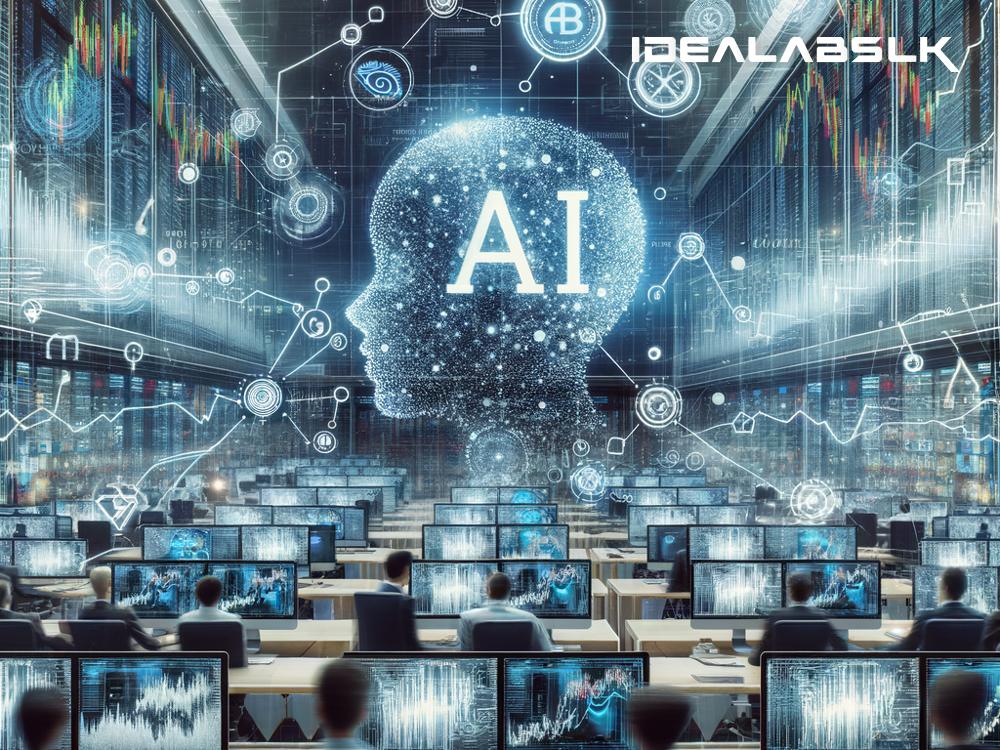Title: AI in Trading: Making Sense of Market Movements with Artificial Intelligence
Ever wondered if you could predict the future of the stock market? Well, it might not be just a dream anymore, thanks to the power of Artificial Intelligence (AI) in trading. In the past few years, AI has revolutionized the way traders approach the market, offering insights that were previously unimaginable. This blog post aims to shed light on how AI is changing the game in trading by predicting market movements.
Understanding AI in Trading
At its core, AI involves creating computer systems that can perform tasks typically requiring human intelligence. This includes learning, decision-making, and problem-solving. In the context of trading, AI can analyze vast amounts of market data at lightning speeds, much faster than a human can. But it's not just about speed; AI can also identify patterns and trends in the data that might not be visible to the human eye.
How AI Predicts Market Movements
The magic of AI in trading lies in two key techniques: Machine Learning (ML) and Natural Language Processing (NLP).
-
Machine Learning: ML allows AI systems to learn and improve from experience without being explicitly programmed. In trading, ML algorithms can analyze historical market data to identify patterns. For example, it can learn the typical signs of a stock about to increase in value or indicators of a market downturn. Over time, as it digests more data, the AI becomes better at predicting future market movements based on past trends.
-
Natural Language Processing: NLP helps computers understand human language. For traders, this aspect of AI can be particularly useful in analyzing news articles, social media posts, and financial reports to gauge market sentiment. If there’s suddenly a lot of negative news about a particular company, an AI system using NLP might predict a drop in that company's stock price.
AI in Action: Elevating Trading Strategies
With the ability to crunch numbers and analyze data in real-time, AI equips traders with powerful tools to enhance their decision-making.
-
Risk Management: By forecasting market trends with a higher degree of accuracy, AI can aid traders in mitigating risks. If an AI model predicts a high likelihood of a market downturn, traders can adjust their portfolios in advance to protect against potential losses.
-
Automated Trading: Some traders leverage AI to execute trades automatically based on specific criteria, such as buying a stock when it falls to a particular price. This not only speeds up the trading process but can also help remove emotional decision-making from the equation.
-
Portfolio Diversification: AI can analyze the performance potential of numerous assets simultaneously, assisting traders in selecting a well-diversified portfolio that balances risk and reward more effectively.
The Challenges and Limitations
While AI offers immense potential, it's not a silver bullet. One of the main challenges is the quality of data. AI models are only as good as the data they're trained on, and inaccurate or biased data can lead to flawed predictions.
Furthermore, AI predictions are based on historical data, meaning they might not always account for unprecedented events or black swan events. The financial markets are influenced by myriad factors, including political events, regulatory changes, and unexpected global incidents, which can all throw AI models off course.
The Future of AI in Trading
Despite its limitations, the future of AI in trading looks bright. As technology advances and more high-quality data becomes available, AI models will become increasingly sophisticated and accurate in their predictions. This could democratize trading, providing smaller traders access to tools and insights that were once the preserve of large institutions.
Wrapping Up
AI in trading represents a significant advancement in how we understand and interact with the financial markets. By leveraging ML and NLP to predict market movements, traders can enhance their strategies, manage risks more effectively, and potentially secure better returns.
However, it's crucial to approach AI with a balanced perspective, recognizing its limitations and ensuring robust risk management practices are in place. With the right approach, AI can be a powerful ally in the complex world of trading.
In essence, AI is not about replacing the trader but augmenting their capabilities, enabling them to make more informed decisions and navigate the markets with greater foresight and efficiency.

